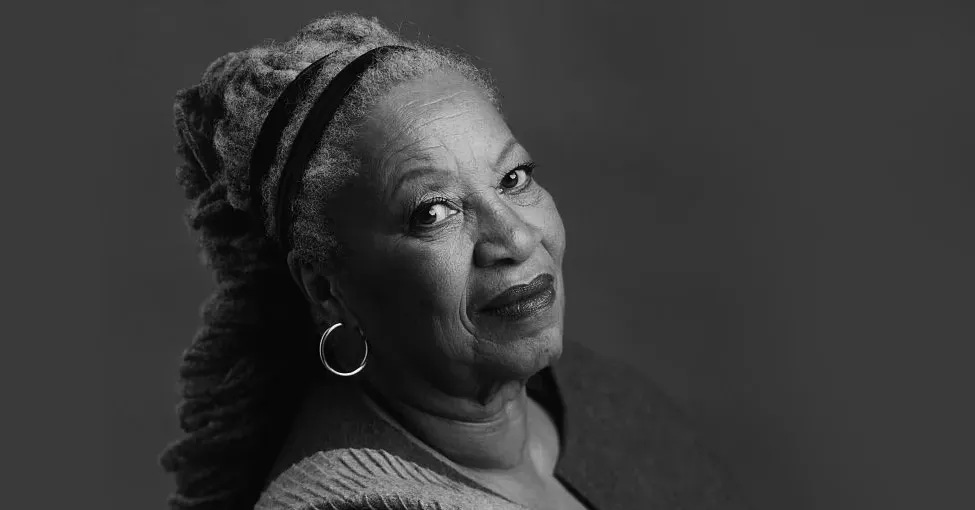Toni Morrison once said,
“This is precisely the time when artists go to work. There is no time for despair, no place for self-pity . . . no room for fear. We speak, we write, we do language. That is how civilizations heal.”
I don’t believe Morrison was calling for performative optimism.
I believe she was naming the artist’s responsibility in times of rupture and crisis. Not to escape the chaos or flee the storm, but to move through it with eyes wide open. To work, unflinching, in the face of violence, inequity, and erasure.
Morrison rejected the idea that Black writers should explain themselves to White audiences. Her work lived beyond the White gaze.
She did not ask for permission.
She did not pause for translation.
Instead, she centered Black life in all its beautiful and terrifying glory—as both subject and authority—refusing the margins entirely.
“I stood at the border, stood at the edge, and claimed it as central,” she said.
That declaration still rings like a fire alarm—clear, resonant, impossible to ignore.
And, it reminds those of us who write—especially those writing from historically marginalized perspectives—that we are not required to write toward someone else’s center. We are not bound to prove our worth.
We do not have to flatten our language or dilute our truths to make them more palatable for a so-called general audience.
Morrison’s legacy insists that writing is not a plea for recognition.
It is a declaration of presence.
A stake in the ground. A burning bush on the horizon. A lighthouse in the ocean.
In times of crisis, the temptation to shrink your voice, to doubt the worthiness of your story, can grow loud and suffocating. The world may distract. The algorithms may silence. The institutions may gatekeep.
Still, your words are needed.
Needed not just to express hidden truths, but to bear witness to visible harm.
To resist. To reimagine. To survive.
Writing during crisis is an act of remembering.
Remembering that what we document now becomes part of the archive of survival for tomorrow. That your perspective, your voice, your way of seeing the world might one day serve as a lifeline in the wreckage, a lantern swinging in the storm, a map guiding lost souls back home.
You are not obligated to provide answers.
You are not required to wrap your pain in a lesson with three main points and a call to action. You are not expected to make your grief beautiful, laced in metaphor and softened by simile.
You are allowed to write what is raw. What is unresolved. What still sits in shadow.
And still, your work will matter.
Your work will echo in rooms you’ll never enter. Your work will plant seeds in soil you may never see bloom. Your work will endure.
The audacity to write as if you are already central is its own kind of freedom.
Such writing becomes freedom papers.
So today, let Morrison’s legacy remind you:
You don’t need to wait. Not for quiet. Not for certainty. Not even for readiness.
You can write now.
Because the moment is asking for it. Because the world cannot wait for your truth to be told. Because silence only deepens the wounds of history.
Write not to appease. Not to perform. But to name what must be named.
Write because someone must.
And do it as though the center has always been yours to claim.
Write anyway.
In solidarity,
P.S. As always, thank you for reading this edition of Freedom Papers. If you found this piece meaningful, share it with a friend. Let our stories of resilience, justice, and love continue to inspire others, as we all work toward a better, more inclusive future. And write. Write, day and night, my friend. We are running out of time.







True, genuine, plea-ful, heartfelt.
Oh, how I love and miss Ms. Morrison. 🖤